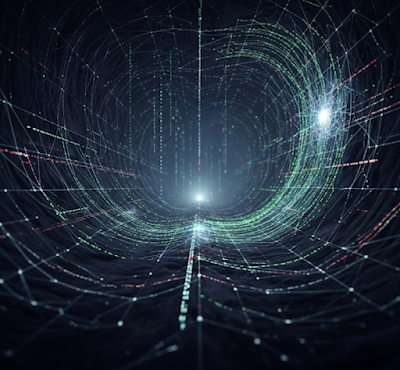Dark Web Exposed: Everything You Need To Know About The Internet's Deepest Secret
Most of us spend our time on the Surface Web — websites accessible through search engines like Google or Bing. But beneath this visible layer lies a vast and mysterious space known as the Dark Web, a digital underworld that sparks curiosity, controversy, and fear.
So, what exactly is the Dark Web? Is it illegal? How do people access it? Let's dive deep into the internet's hidden corridors.
What About The Dark Web
The Dark Web is a concealed layer of the internet that cannot be accessed through regular browsers or search engines. It requires special tools like the Tor browser. While it's often associated with illegal activity, it also serves as a vital platform for privacy-focused users, including journalists and activists. Accessing the Dark Web is legal in India, but using it for unlawful purposes is not.
Understanding The Layers Of The Web
Surface Web: Regular websites like YouTube, Facebook, Google.
Deep Web: Private content like banking, academic, and email data.
Dark Web: Hidden sites using special browsers like Tor, often associated with anonymity and underground activity.
How To Access The Dark Web
To access Dark Web content, users typically use: Tor (The Onion Router): A browser that allows access to .onion websites while keeping users anonymous.
I2P (Invisible Internet Project): Used for secure and anonymous communication.
Note: Using the Dark Web is not illegal, but engaging in illegal activities on it is.
What’s On The Dark Web?
✅ Legal Uses:
- Whistleblower platforms like SecureDrop
- Forums for free speech in oppressive countries
- Banned books and libraries
❌ Illegal or Controversial Content:
- Black markets (drugs, fake IDs, weapons)
- Hacked data and leaks
- Hitmen or hacking services (often scams)
Why Do People Use the Dark Web?
- Anonymity: Avoid surveillance or censorship.
- Freedom of speech: In repressive societies.
- Illegal activities: Sadly, also a hub for criminals.
On 19th July, NewsX reported that a Muvattupuzha youth — also a mechanical engineer, got arrested by Kerala police for the distribution of drugs on the dark web in India. He capitalized on the anonymity of the site to reach out to buyers and exchange illicit items.
Notable Dark Web Facts
- Originally funded by the US Navy for secure communication.
- Many sites are scams — some estimate over 70% of dark markets are fraudulent.
- FBI shut down Silk Road in 2013 — a major Dark Web marketplace.
- Sites disappear frequently without warning.
Can the Dark Web Be Tracked?
Short Answer: Yes, but with limitations.
What Can Be Tracked?
1. Traffic Patterns
Even though Tor encrypts and anonymizes your activity, intelligence agencies and cybersecurity firms can monitor entry and exit nodes to analyze traffic patterns — though it’s difficult to link that data directly to individuals.
2. Mistakes by Users
If a person logs in using their real identity, reuses passwords, or downloads malware, they can be exposed and tracked. This is the #1 way people get caught on the Dark Web.
3. Undercover Operations
Law enforcement agencies like the FBI, NSA, Interpol, and India’s CERT-In run sting operations, create honeypots, and infiltrate forums to catch illegal activity.
4. Exit Node Surveillance
If you're visiting a non-onion site through Tor, data can be intercepted at the exit point if not encrypted (e.g., not using HTTPS).
What’s Hard to Track?
- Encrypted .onion websites don’t reveal server locations.
- No IP addresses are directly shared unless the user leaks it.
- Peer-to-peer and encrypted chat apps are very difficult to monitor.
Even though Tor offers anonymity, no system is 100% foolproof. If government agencies are motivated, they can track specific users — especially if they're breaking the law or targeted.
Is the Dark Web Dangerous?
- Malware and viruses are common.
- Scams are widespread.
- Surveillance is real, even on the Dark Web.
- You may come across disturbing or traumatic content.
“The Dark Web isn’t invisible — it’s just harder to see. But make one wrong move, and someone might be watching.”
Should You Explore The Dark Web?
It depends. If you're a journalist or activist, it may offer tools for safe communication. But if you're merely curious, proceed with extreme caution.
“The Dark Web is like a knife — a tool that can either protect or harm, depending on who wields it.”
Tips For Staying Safe
- Use a VPN alongside Tor
- Never reveal your identity or location





Comments